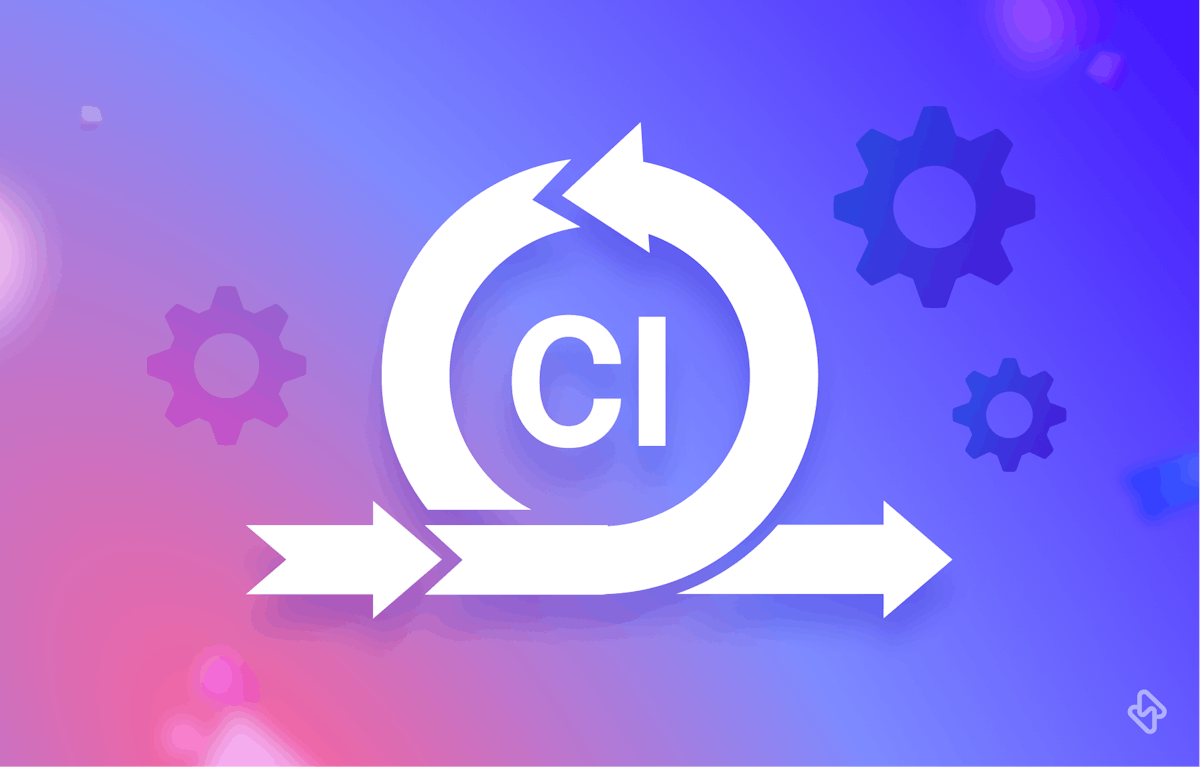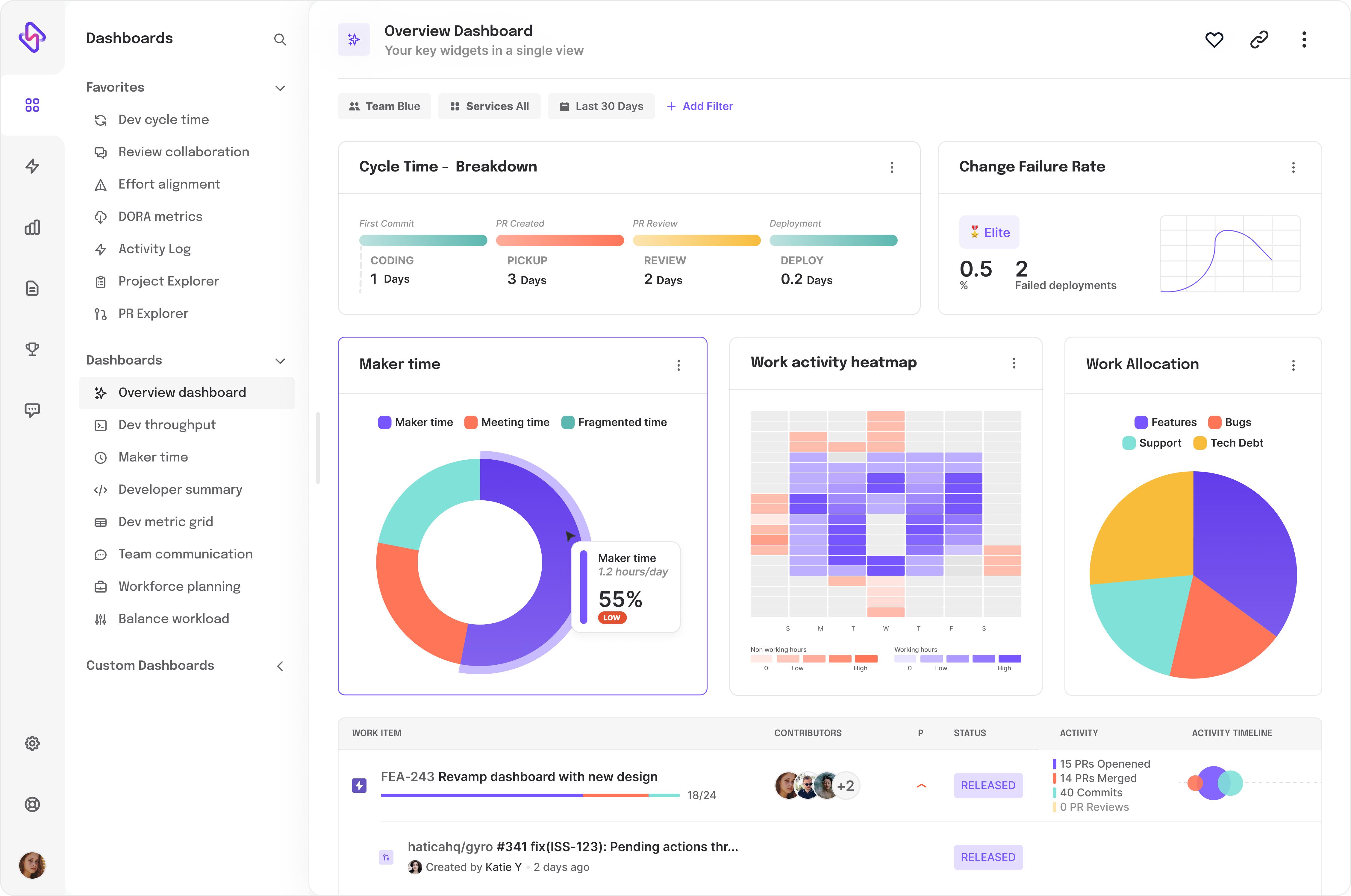Continuous Integration tools are essential for modern software development teams who strive for fast and reliable delivery. A robust CI tool can streamline workflows, optimize automation, and create a solid pipeline that boosts your team's productivity. With so many options available, choosing the right CI/CD tool for your team can be a challenge. In this article, we've curated a list of the top 10 CI tools on the market, highlighting their key features to make the selection process easier.
1. Jenkins
Jenkins is a popular open-source automation server that serves as the core of the build and continuous integration process. It offers easy installation and upgrades across various operating systems, a user-friendly interface, and a vast plugin library that supports building, deploying, and automating software development projects.
Key Features
- Cross-platform support
- Extensible with community-contributed plugins
- Simple and user-friendly interface
Jenkins Advantages
- Active community and extensive documentation
- Highly customizable through pipelines and scripting
- Seamless integration with popular tools and platforms
Jenkins Disadvantages
- Initial setup and configuration can be time-consuming
- Requires manual updates and maintenance of plugins
- Performance may suffer in large-scale projects
[Read related: Top 10 Must Have Jenkins Plugins in 2024]
2. CircleCI
CircleCI is a powerful CI/CD tool that enables rapid software development and publishing. It automates the entire pipeline, from code building and testing to deployment. With seamless integration with GitHub, GitHub Enterprise, and Bitbucket, CircleCI can create builds when new code lines are committed.
Key Features
- Integration with Bitbucket, GitHub, and GitHub Enterprise
- Container or virtual machine-based builds
- Easy debugging and automated parallelization
[Read more: 5 CircleCI Optimizations For Faster Deployments]
3. Bamboo
Bamboo is a continuous integration server that automates the management of software application releases, creating a continuous delivery pipeline. It covers building, functional testing, version assignment, release tagging, and deployment
Key Features
- Supports up to 100 remote build agents
- Parallel test execution for quick feedback
- Per-environment permissions for better access control
4. GitLab CI/CD
GitLab CI/CD is an all-in-one software development platform that uses continuous methodologies for rapid development and deployment. It offers robust planning tools, code quality security features, and the Auto DevOps feature for automatic building, deployment, testing, and monitoring.
Key Features
- Cloud provider integration via OpenID Connect
- ChatOps for triggering CI tasks
- Browser and server performance analysis
[Read more: How to Build Faster CI/CD Pipelines with GitLab]
5. GitHub Actions
GitHub Actions simplifies automating software workflows with world-class CI/CD capabilities. It allows you to build, test, and deploy code directly from GitHub while connecting all your tools to automate each step of the development workflow.
Key Features
- Supports Windows, Linux, macOS, ARM, and containers
- Time-saving matrix workflows
- Live logs for real-time insights
[Read more: Automating Documentation Workflow With GitHub Actions]
6. Bitbucket Pipeline
Bitbucket Pipeline is an integrated CI/CD tool that helps automate your code from test to production. It provides a unified experience with Bitbucket repositories and supports full integration of end-to-end job results to Jira.
Key Features
- Development to deployment process automation
- Unified experience with Bitbucket repositories
- Integration with Jira
[Read: GitHub Vs. Bitbucket: Which Code Hosting Platform is Best?]
7. Travis CI
Travis CI is a hosted continuous integration service that offers seamless integration with GitHub. It supports multiple languages and platforms and provides real-time feedback on builds and tests, making it an ideal choice for open-source and private projects alike.
Key Features
- Supports a wide range of languages and platforms
- Easy integration with GitHub
- Customizable build environments
8. Azure DevOps
Azure DevOps, formerly known as Visual Studio Team Services (VSTS), is a suite of tools that support continuous integration, testing, and deployment of applications. With its robust feature set and seamless integration with Microsoft technologies, Azure DevOps is an excellent choice for teams working within the Microsoft ecosystem.
Key Features
- Integration with Microsoft technologies
- Support for a wide range of languages and platforms
- Extensibility with Azure DevOps Marketplace
Curious about Azure Pipeline triggers? Explore how to efficiently manage your CI/CD process using Azure Pipeline triggers on pull requests for automated deployments.
9. Codefresh
Codefresh is a modern CI/CD tool designed for Kubernetes and Docker environments. It offers a unique, container-based pipeline that provides a faster and more efficient build process. Codefresh is built for teams that rely on containers and microservices architectures.
Key Features
- Kubernetes and Docker-focused
- Unique, container-based pipeline
- Helm and Istio integrations
10. TeamCity
Developed by JetBrains, TeamCity is a build management and continuous integration server that supports various project types. It runs in a Java environment and integrates with Visual Studio and IDEs. TeamCity can be installed on Windows and Linux servers and supports .NET and open-stack projects.
Key Features
- Reusable settings and configurations across projects
- Parallel builds on different environments
- Build history and test history reports
[Read more: CI/CD pipeline tools for 2024]
Empower Your Software Delivery with 10 CI Pipeline Tools
Continuous Integration and Continuous Delivery (CI/CD) tools have become indispensable for teams aiming for accelerated and reliable software delivery. A powerful CI pipeline can optimize workflows, streamline automation, and enhance overall team productivity. With a plethora of options to choose from, selecting the ideal CI/CD tool for your team can be a daunting task. In this article, we have explored the top 10 CI/CD tools available, shedding light on their key features to assist you in making an informed decision.
From the widely used open-source Jenkins to the Kubernetes and Docker-focused Codefresh, each of these tools offers unique benefits tailored to different development environments and team requirements. When considering a CI/CD tool, it's crucial to factor in your team's specific needs, such as language support, platform compatibility, integration capabilities, and scalability.
The key takeaway from this article is the importance of selecting a CI/CD tool that aligns with your team's objectives and workflow. By doing so, you can accelerate software delivery, improve code quality, and boost overall team efficiency.
Subscribe to the Hatica blog today to read more about unblocking developers, and boosting productivity with engineering analytics.



